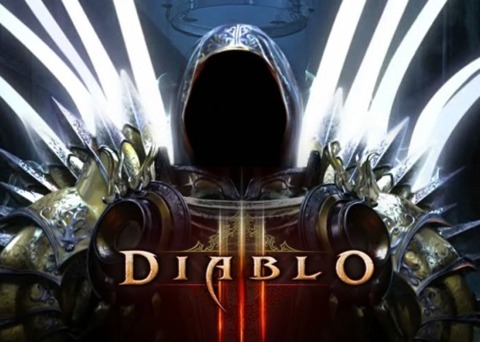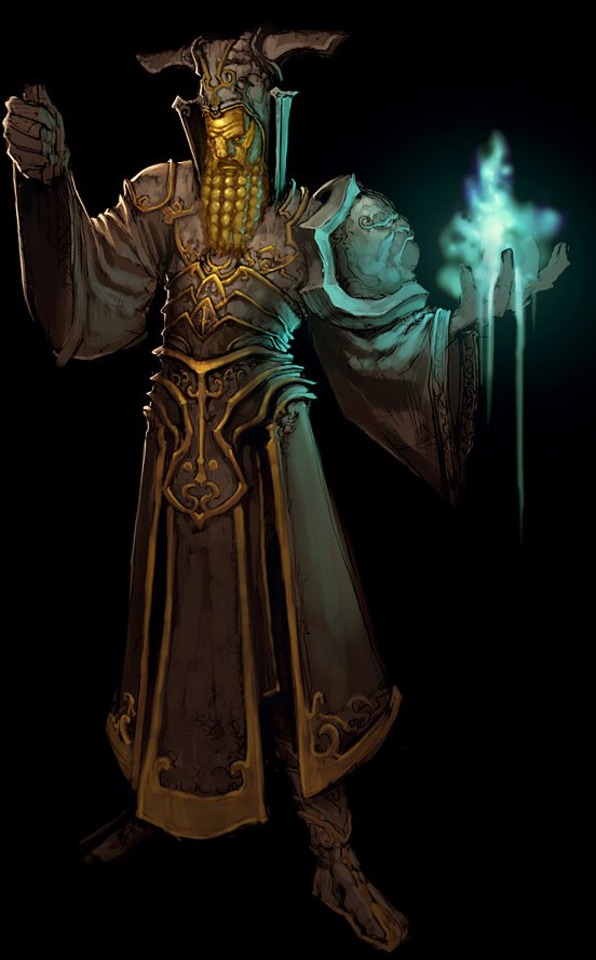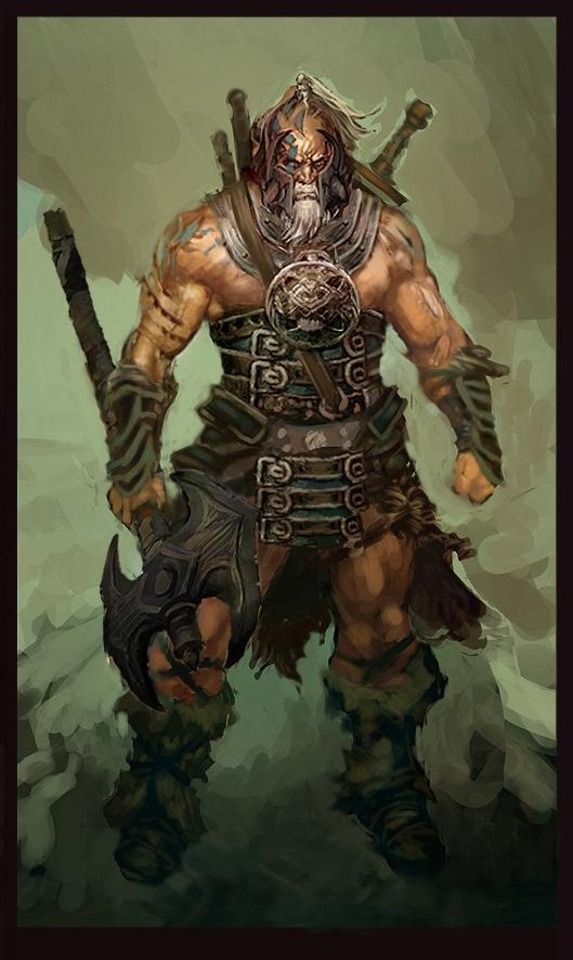BlizzCon 2008: Staying true to Diablo
Lead designer Jay Wilson opens up about his team's game creation philosophy, with more information to arrive "in the coming months...and years."
ANAHEIM, Calif.--Diablo III was the topic of one of the first sessions on the first day of BlizzCon 2008, and it is the central player of one of the last. However, whereas the first was devoted primarily to shedding light on the skill set of the newest member to join Diablo III--the wizard--the second dealt heavily with Blizzard's game design philosophy in the demonic action role-playing game.
Diablo III lead designer Jay Wilson and technical game director Wyatt Cheng returned to helm the panel, with Cheng acting as a silent partner in the presentation. As he did only a few hours earlier, Wilson began by looking back at the history of Diablo, taking note of the core gameplay elements of the franchise. Diablo, Wilson began, was a reinvigoration of the role-playing game market, offering simple, action-based gameplay with random dungeon and item drops. Diablo II's primary contribution was to refine the mechanics of the first, as well as dramatically expand the universe's scope.
With these elements in mind, Wilson laid out what he and his team wanted to accomplish with Diablo III. Foremost, it was important to stay true to the Diablo experience. "We wanted a game that when people played it, they essentially said, 'Yeah, this feels right.'" Additionally, the design lead said that it was critical that the game feel visceral, such that each moment was intense and meaningful. It was also important for the Blizzard team to expand on the RPG experience without pulling the focus too far away from the game's hack-and-slash roots.
Significantly, Wilson said that the Diablo team has devised several new systems to give the game its RPG bent, such as the rune system detailed during this morning's session, but that it was "something to discuss in the coming months...and years."

Returning to the point of staying true to Diablo, Wilson noted that replayability was a core component of the game. Randomness is central to creating a replayable RPG, the lead designer said, noting that environments, monster encounters, and items all play into this concept. It isn't the only way to instill a game with replayability, however, as Wilson also pointed to higher difficulty levels ("we intend to bring back nightmare and hell difficulties"), as well as staged events, or adventures.
Also in the spirit of Diablo, epic heroes were identified as integral for Diablo III. "We want to put as many monsters onscreen as possible, then create epically powerful people who pound them into the dirt," said Wilson, eliciting a buoyant reaction from the crowd. Like Diablo II and Diablo before it, Diablo III will focus on a small number of classes that play distinctly differently from one another.
Even Blizzard has caught the nontraditional gamer bug, and Wilson noted that approachability was also an important element for the team. "If you can click a mouse, you can play Diablo," mused Wilson, saying in manner soon to be cliche that even his nongamer wife greatly enjoyed the Diablo III experience. The design lead also emphasized the game's "simple to learn, difficult to master" gameplay, a tenet of the franchise, as well as the importance of a smooth learning curve. "In Diablo II's normal mode, it was actually a fairly easy game," he said.
Wilson also said that Blizzard is working on a new version of Battle.net to better accommodate cooperative play. "We want to remove as many barriers as possible for people to play and communicate with one another," he said.
Getting back to Diablo's tried-and-true gameplay, Wilson said that the game's action elements were heavily scrutinized. One of the most significant changes made to the gameplay in order to improve the action was to remove the use of potions as the primary health mechanic. To prevent players from being so reliant on health potions, Wilson said that defeated monsters will now drop globes of health. This mechanic is also intended to keep players in the fray, so there would be little to no downtime between battles.
Giving players the option to do more than just charge and click was also an important consideration for the Diablo III team, said Wilson. Giving the example of the berserker monster, Wilson said that it is unwise to take these characters head-on. Instead, the berserker was designed as a heavy hitter that will be vulnerable if he misses. Were the players to check their advance, they'd be able to get easy hits on the berserker after they miss and their weapons become stuck in the ground.
As the action was measured, so was the role-playing. Wilson said that his team has taken steps to improve the game's story without losing Blizzard's "opt in" philosophy of giving players the choice to read dialogue. He also promised that the RPG elements will be improved by alleviating the generic nature of random dungeons, as well as incorporating more non-player character interactions to bring the world to life.
"We want to treat quests as a way to change up gameplay," he further explained. "If a town comes under attack, you may have to save citizens, aid guards, do something other than just have players clicking madly on a monster."
Concluding his talk, Wilson returned to the point he briefly touched upon earlier: adventures. A new component introduced with Diablo III, adventures are essentially scripted events that can be placed anywhere within a level. Whether or not the adventure arises on any given play-through will be random, as will the area that they slot into.
Got a news tip or want to contact us directly? Email news@gamespot.com


Join the conversation